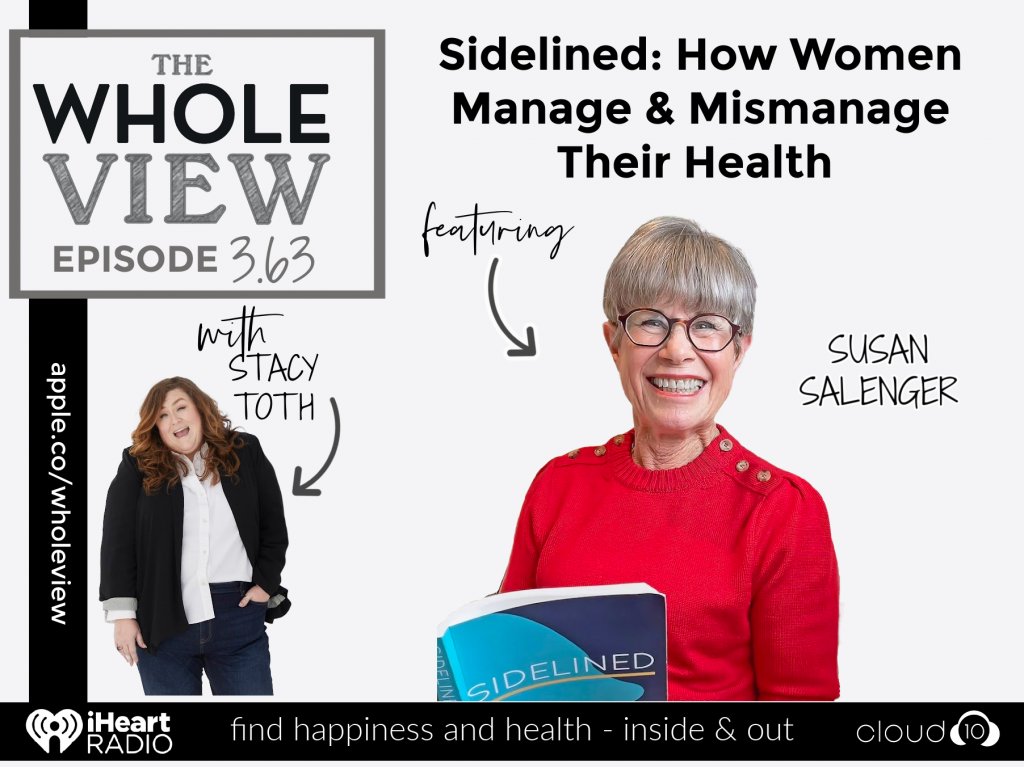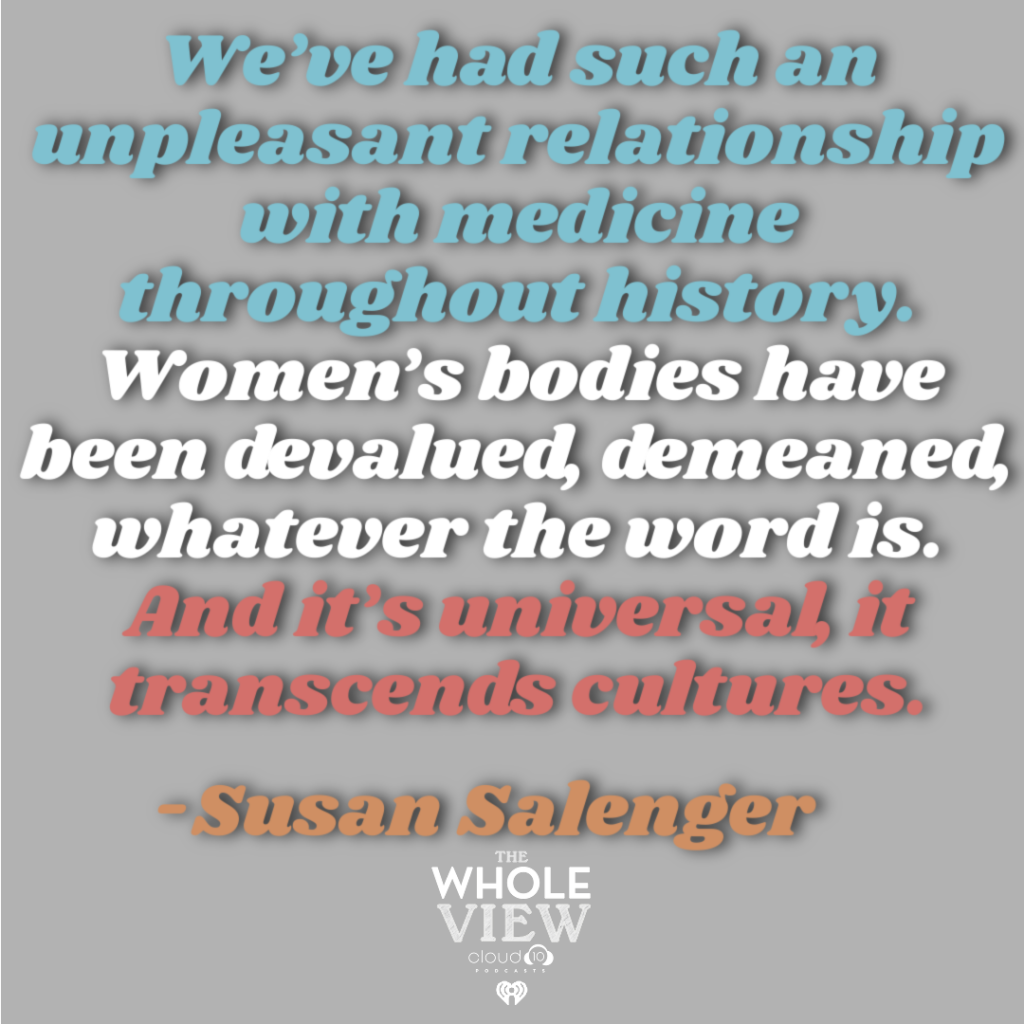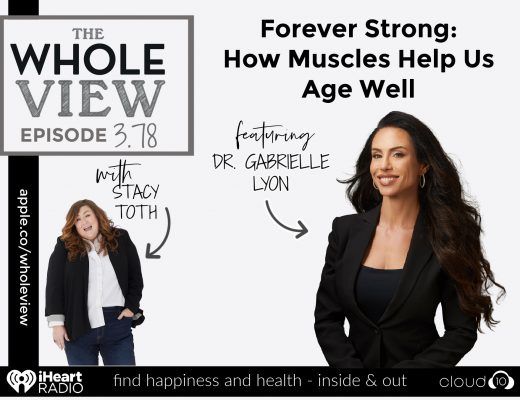Welcome life-long student and author Susan Salenger to The Whole View. Stacy and Susan discuss why getting a second medical opinion is important and the shame that often comes with illness, especially for women. Susan shares tips on making the most out of your next doctor’s appointment and why it’s worth it to do your own health research.

Find Susan:
If you enjoy the show, please leave a review. Letting people know on iTunes or however you listen that it’s worth their time could change someone’s life!

Key Takeaways
Introductions
- Susan is the author and researcher behind Sidelined, How Women Manage & Mismanage Their Health, which examines the many ways in which some women manage and sometimes mismanage their healthcare. She explores how women, typically the medical gatekeepers for their families, tend to be extremely conscientious about taking care of themselves, yet at the same time inadvertently undermine their own care.
- Born and raised in Los Angeles, Susan attended UCLA to study English. After graduation, she worked alongside her husband Fred for 25 years at their production company, Salenger Films, which produced corporate training and development films distributed worldwide.
How Women Manage & Mismanage Their Health
- Men and women describe symptoms differently to doctors. Often when women mention “stress”, many other things are dismissed.
- Susan explains how important a second opinion can be, though women are less likely to get them, as they may see it as if they are challenging or insulting the doctor. It’s important to recognize that it isn’t necessarily a challenge. So if your doctor interprets it that way, it may be time to get a different doctor.
- She notes that if she personally would have gotten a second opinion, I would not have had surgery. She also notes that of the women she interviewed, if they had a second opinion, many would not have had a hysterectomy.
- Women tend to be “good” at putting themselves and their healthcare last after children, pets, elderly parents, and partners. Furthermore, they tend to feel shame – Illness a public acknowledgment of not being able to take care of themselves or their families
Next Steps
- Susan provides some useful suggestion for your next doctor’s visit:
- Control the interview – with a prioritized LIST of your symptoms (written) – Don’t come up with a new problem as they’re leaving the room
- Ask for the clinical name of the disease so that you can research it – do the research!
- Reframe in your own words, “What I’m hearing is…” in order to give the doctor a chance to confirm and that you heard correctly (only 15% of women will tell doc when they don’t understand something – 85% leave without understanding what they’ve been told)
- Take a “buddy” for four ears to listen and take notes
- It’s your body – advocate for yourself (no one else will)
- Find a support group
Studies, References & Products
- Sidelined: How Women Manage & Mismanage Their Health by Susan Salenger
- Harvard School of Public Health: How discrimination can harm black women’s health
- American Bar Association: Implicit Bias and Racial Disparities in Health Care
Sponsors
- JustThriveHealth.com/discount/wholeview | Use code WHOLEVIEW for 15% off sitewide
- TakeCareOf.com | Use code WHOLEVIEW50 for 50% off your first order
Want more info on our Real Life? Healthy recipes, parenting tips, and general lifestyle stuff goes out in our Real Everything newsletter, join here.
Never want to miss a post, sale, or deal? Join my Healthy Inside & Out e-mail list for more info on non-toxic living and safer skincare!
Note: Stacy and her guests are not medical professionals. This podcast is for general educational purposes and NOT intended to diagnose, advise, or treat any physical or mental illness. We always recommend you consult a licensed service provider.




